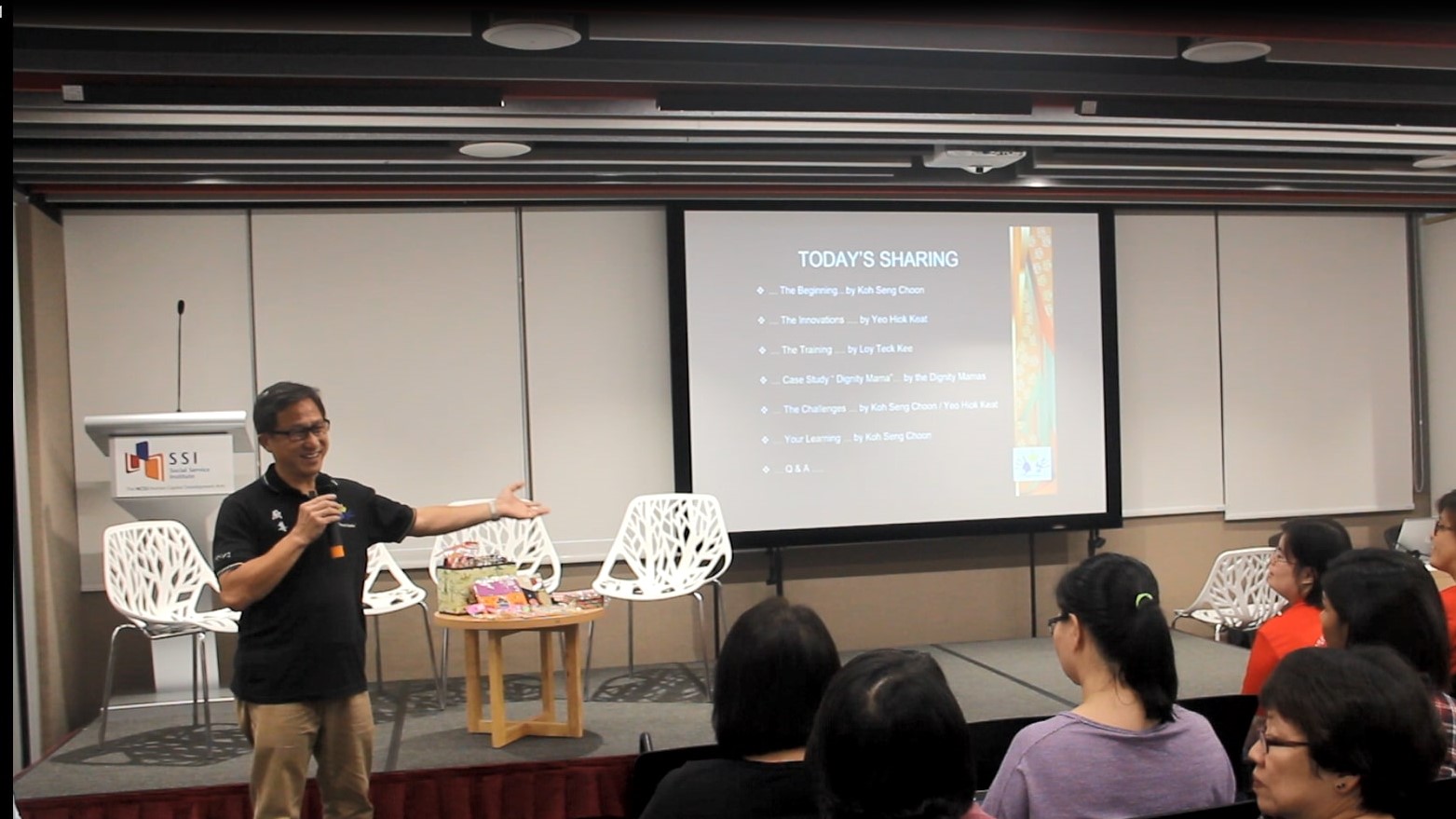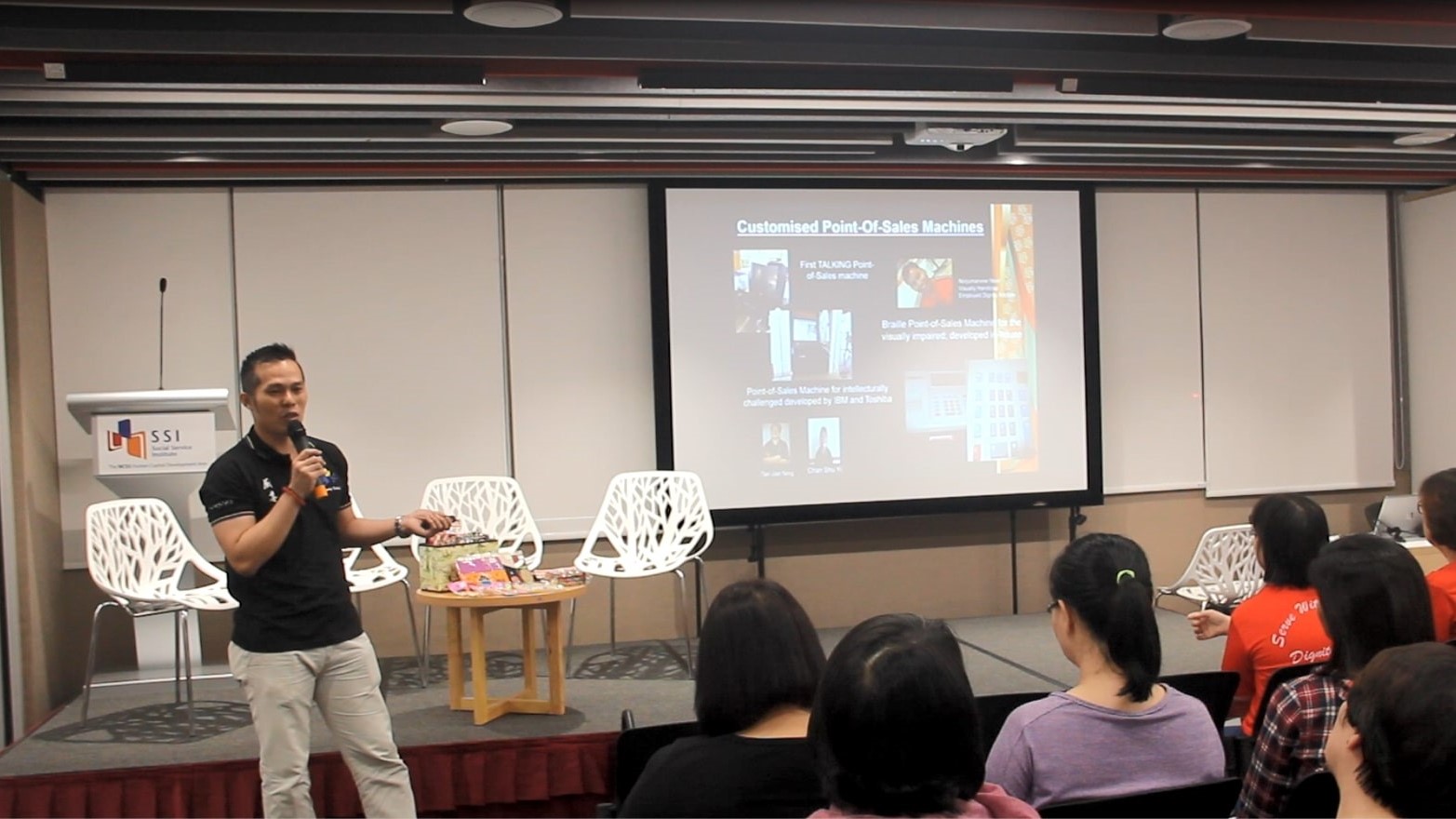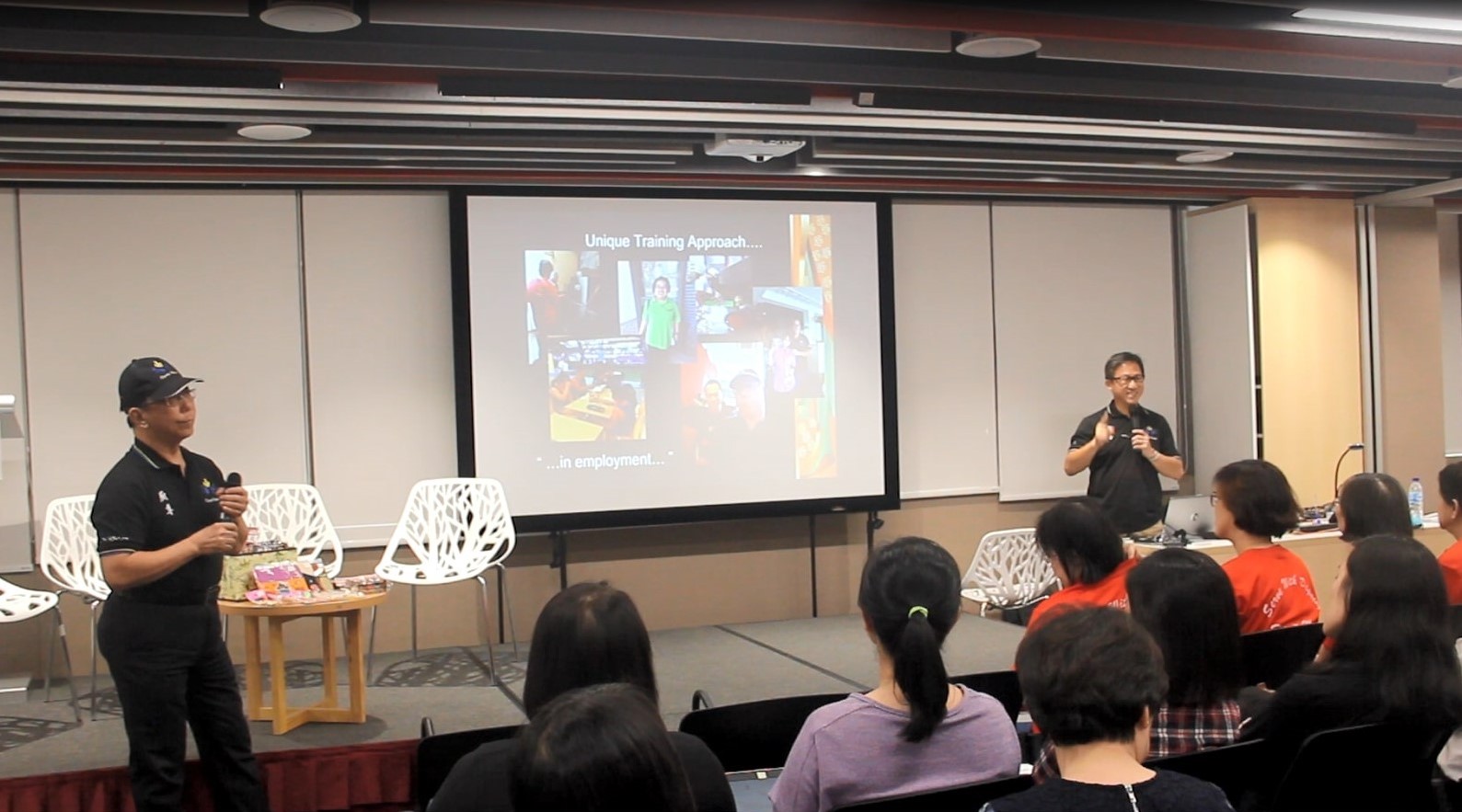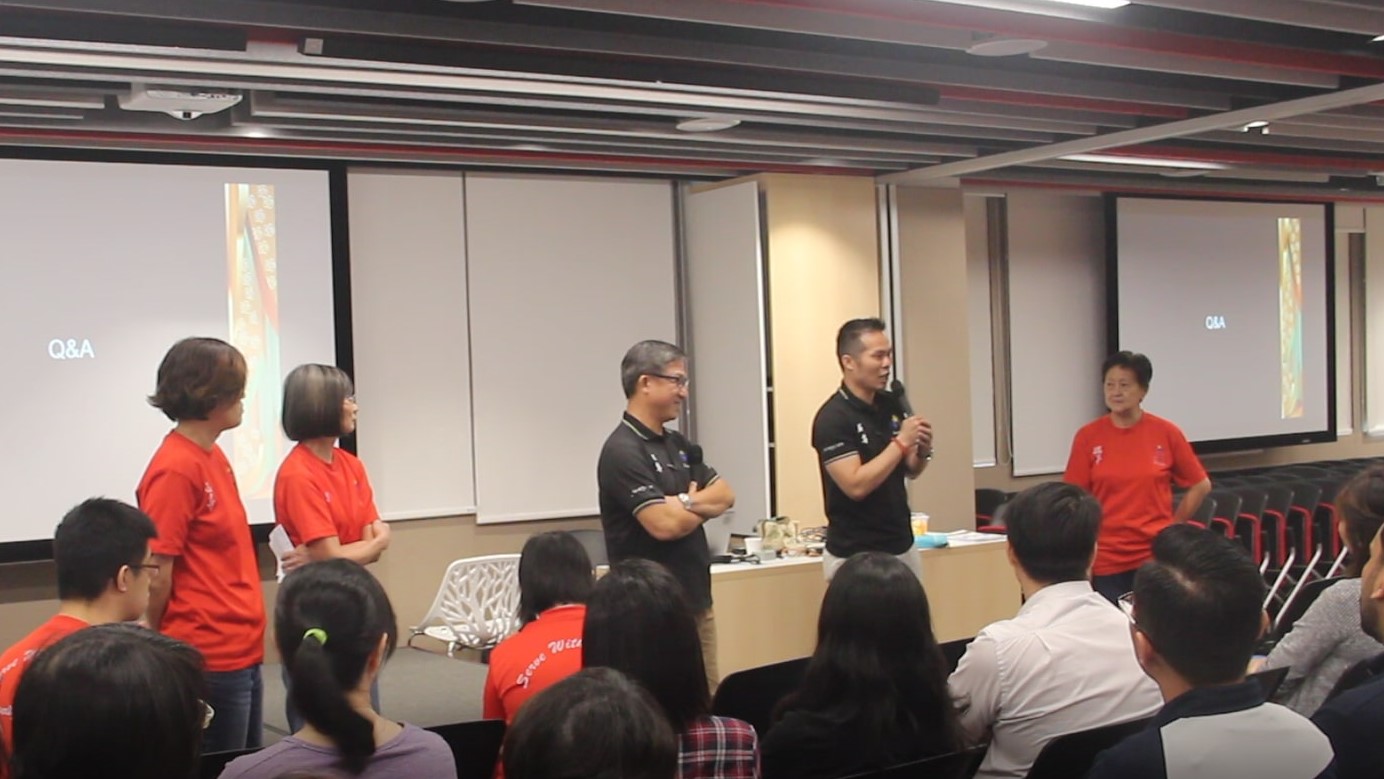Test header
Mining Deep, Scaling Heights, Session: Innovation for Social Good
On 29 September 2017, the Project Dignity team was invited to share the concept behind their social enterprise in the session “Innovation for Social Good”. They shared the practical skills required in working with the vulnerable, their training and curriculum, as well as what is needed to sustain Project Dignity – a unique social enterprise that caters to the elderly, persons with disabilities and the disadvantaged.
Speakers – a team of social service practitioners and members from South Central Community Family Service Centre (FSC):
1. Mr Koh Seng Choon, Executive Director, Project Dignity
2. Mr Yeo Hiok Keat, General Manager, Project Dignity
3. Mr Loy Teck Wee, Head Trainer, Project Dignity
Designations as of 29 September 2017.




What is a Social Enterprise?
A commercial entity with a social mission.
Aims of Project Dignity Initiatives
- To create a platform for individuals to re-integrate into society, via the creation of hawker centres and bookshops
- To build and return dignity to the disadvantaged and disabled
- To create gainful employment via nurturing employable skills
Dignity Kitchen Concept
- A buddy system which pairs an able-bodied individual with a disabled individual
- An environment which allows for individuals with different IQ levels and different disabilities to work together
- A system which pays individuals to attend trainings, as a way to motivate them to come
Dignity Mama Concept
- Pairing mother and child together for work
- Tapping on a safe environment, such as hospitals, to set up bookstores
- Selling used books received at zero-cost
- Teaching employees how to price, clean and sort books
- Integrating employees into society via their participation in bazaar events as vendors
Innovative and Safe Infrastructure to Cater to Employees’ Needs
- Height adjustable workshops
- Lightweight worktops for the wheelchair bound
- Customised Point-of-Sales machines
Training Approaches
- Focusing on individuals’ advantages and strengths rather than their disadvantages
- Creating customised training curriculums for employees, testing them out, and improvising them along the way (Trial and Error)
- Fine tuning these curriculums according to each individual, as everyone has specific needs
Revenue Obtained from:
- Training programmes for individuals who want to enter the hawker trade
- Venue booking by elderly homes for events
- Consultancy projects
Challenges
- Hefty and increasing costs of rental
- Catering to a range of people with different disabilities. People with different disabilities have different needs and face different challenges at work. It is thus necessary to customise curriculums according the different ways through which individuals learn.
- Overcoming the public’s negative perception towards PWDs, and the lack of empathy for them. Due to social stigmas, people are often reluctant to purchase food from vendors with disabilities, such as from individuals with mental health issues.
Future Plans
- Expansion of business in countries such as India and Hong Kong
WHAT TO READ NEXT
- MDSH Session: Approaches, Principles and Practice in Working With Persons With Disabilities
- MDSH Session: Partnering Across Disciplines: Educational Psychology and Social Work
- MDSH Session: More Than Just a House: Perspectives of Journeying With Families With Housing Issues
- MDSH Session: Working With Vulnerable Families and Systems: Insights From the Strengthening Families Together Pilot
- MDSH Session: When Community Gets Real